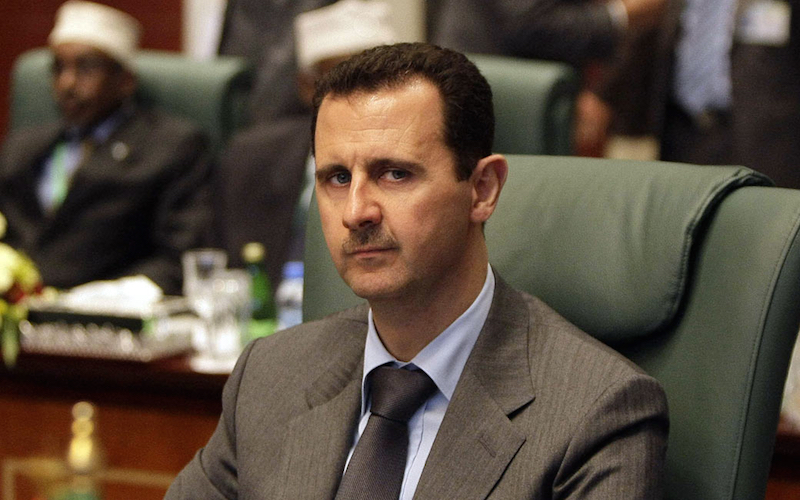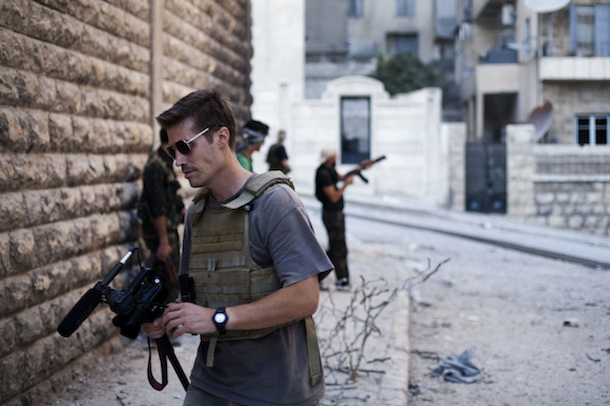
Will We See a Return to the Policy of Dictatorial Support?
Over the past weeks the presence and sustained onslaught of Islamic State (IS) fighters has continued to shock and sicken populations and governments across the globe. With acts of despicable horror being reported on a daily basis, most recently the murder of American journalist James Foley, the question is: what can be done to stop this assault on human dignity and life, and what can be done to stop groups like this gaining prominence in the future?
The answer to the first part of the question is being slowly and painstakingly tackled by western leaders and looks as if it will not progress past the point of humanitarian aid, air strikes and the supply of weapons and training to Iraqi and Kurdish forces. This has been made austerely clear by a number of announcements by government officials on both sides of the Atlantic emphasising that there will be ‘no boots on the ground’ and no ‘mission creep.’
The second part of the question has so far attracted less attention. The reason the likes of IS have been able to gain such power and influence in the region is due to the consistent instability in the Middle East following the Arab Spring. Not to say that the Arab Spring and its message and aim of overthrowing dictatorial regimes and implementing free and open democracies is in any way a negative.
But the flourishing of extremist groups has been an unfavourable bi-product of the region wide revolts.
If we cast our minds back to the days of the likes of Muammar Gaddafi of Libya, Hosni Mubarak of Egypt, Saddam Hussein of Iraq and the days before the Syrian civil war when Bashar al-Assad reigned supreme, the presence and power of such murderous groups was small to non-existent in those states.
The groups still existed of course, but held little sway in any state with which these robust dictatorships were in place and only held real influence in places like Afghanistan where there were much weaker central governments.

Many western leaders will surely be questioning whether we were better off supporting these brutal dictators as long as they kept extremists quiet. There has already been talk of western leaders opening talks with Assad by the former head of the British Army, Lord Dannatt, who stated that he believes the US and Britain should hold talks with Assad to open up a second offensive front against IS. His remarks came in an interview in which he stated “I think whether it is above the counter or below the counter, a conversation has got to be held with him. Because if there are going to be any question of air strikes over Syria airspace it’s got to be with the Assad regime’s approval.”
British Foreign Secretary Philip Hammond quickly rejected Lord Dannatt’s comments and the possibility of a U-turn on their policy decision over Syria and Assad. Western governments may for the time being stick to their efforts to stabilise the Iraqi government and work on ways of tackling the ideology at home and the flow of home-grown fighters that are bolstering IS forces. However, these solutions will require time and effort before results will materialise and if these tactics fall short, or fail to deliver in a short enough time span, western governments may in the future consider supporting or at least ‘turning a blind eye’ to dictators in the region if they are successful in suppressing any unwanted extremist groups.
The combination of threats posed by extremist groups like IS to domestic security and ever present weariness and reluctance towards heavy involvement and foreign intervention makes the option of supporting foreign dictators more attractive as it holds the potential to provide a practical solution to the current issue with minimal cost and involvement. It is likely that many more will echo the argument put forward by Sir Malcolm Rifkind, chairman of Parliament’s Intelligence and Security Committee, for Britain to stay out of Iraq and use third parties including dictators like Bashar Assad to do all the heavily lifting against groups like IS.

